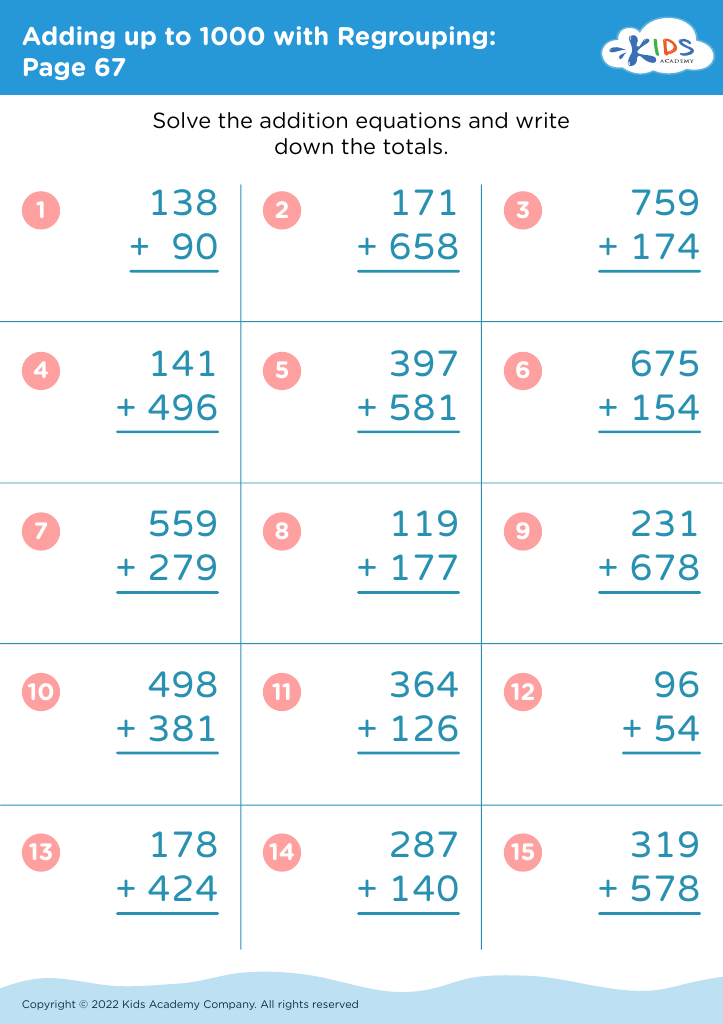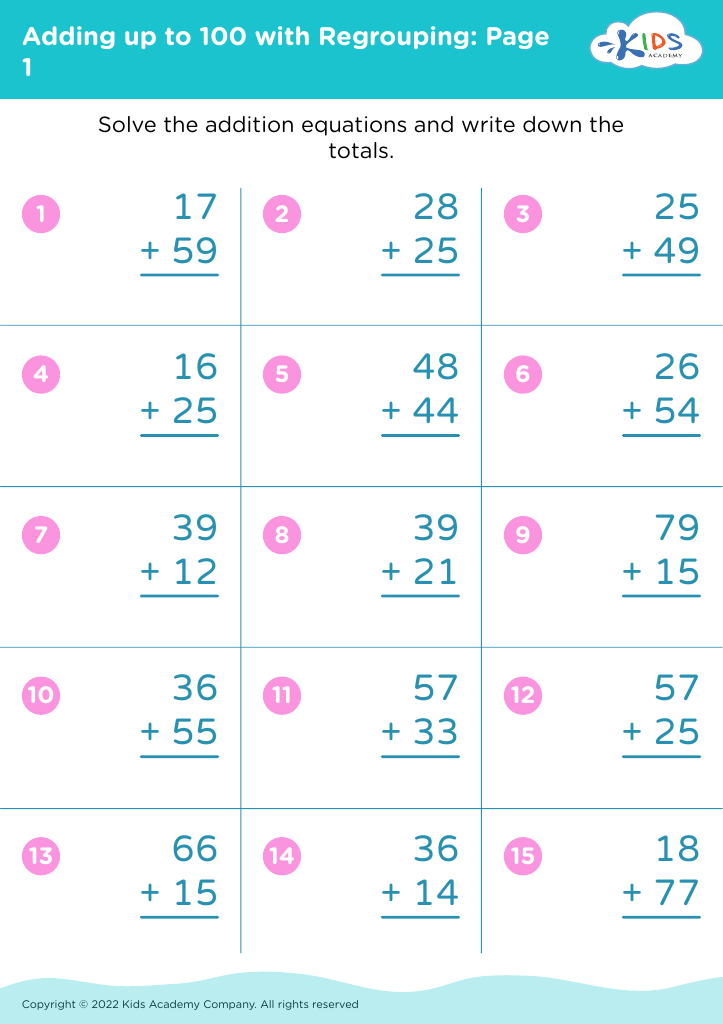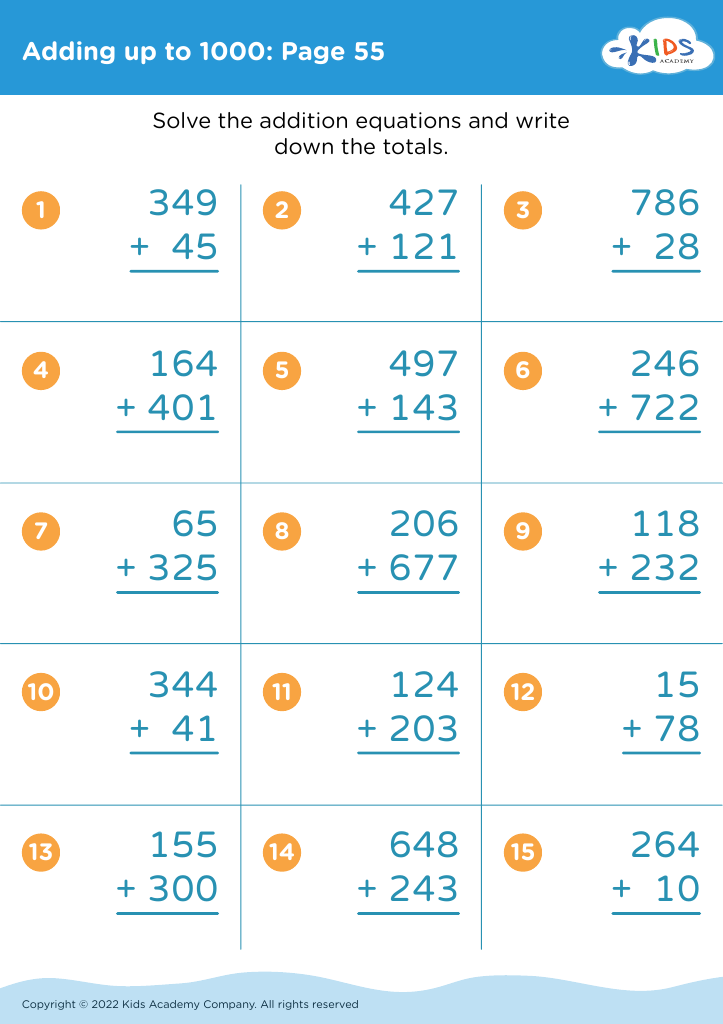Logical thinking development Math Worksheets for 8-Year-Olds
12 filtered results
-
From - To
Unlock your child's potential with our Logical Thinking Development Math Worksheets, crafted specifically for 8-year-olds. Designed to build critical thinking and problem-solving skills, these worksheets challenge young minds with a variety of engaging math problems. Including puzzles, sequences, and strategy games, each worksheet enhances your child's ability to think logically and work through complex tasks independently. Perfectly aligned with educational standards, our worksheets are an excellent resource for both classroom and home learning. Prepare your 8-year-old for future success with fun, interactive, and educational math exercises from Kids Academy!
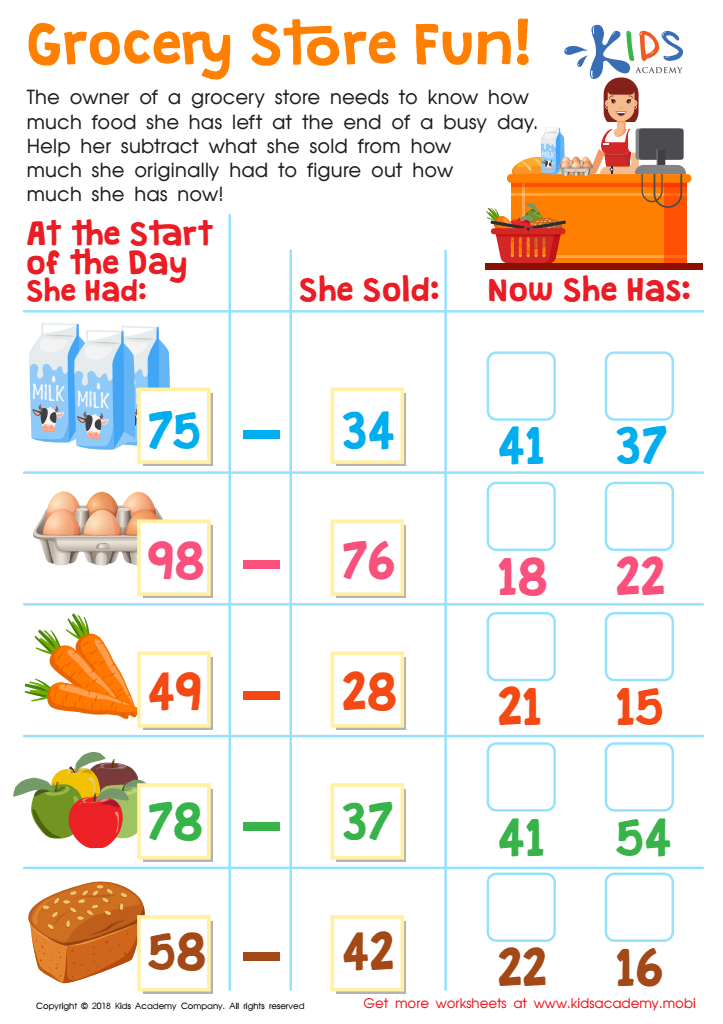

Grocery Store Fun! Worksheet
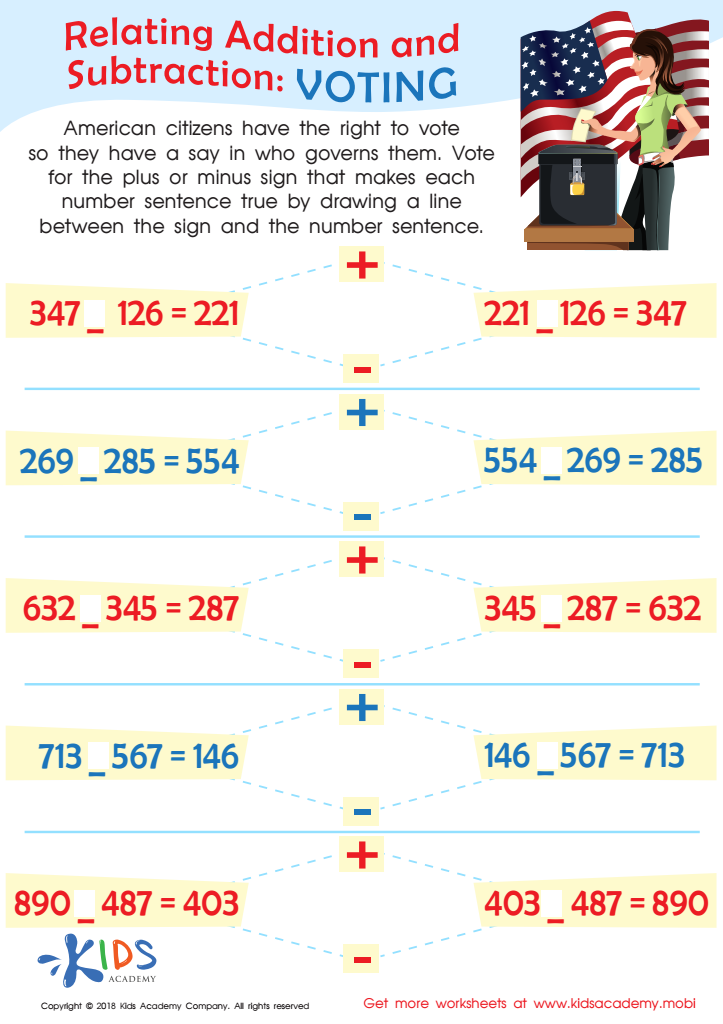

Voting Worksheet


Tricky Problems Worksheet: Part 2
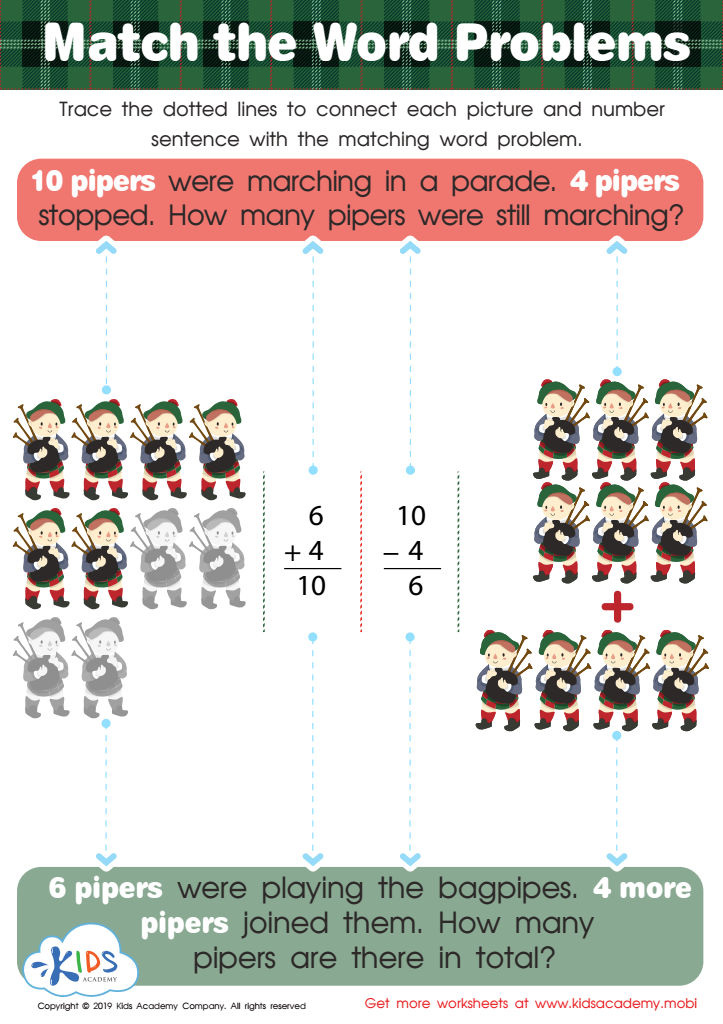

Match the Word Problems Worksheet
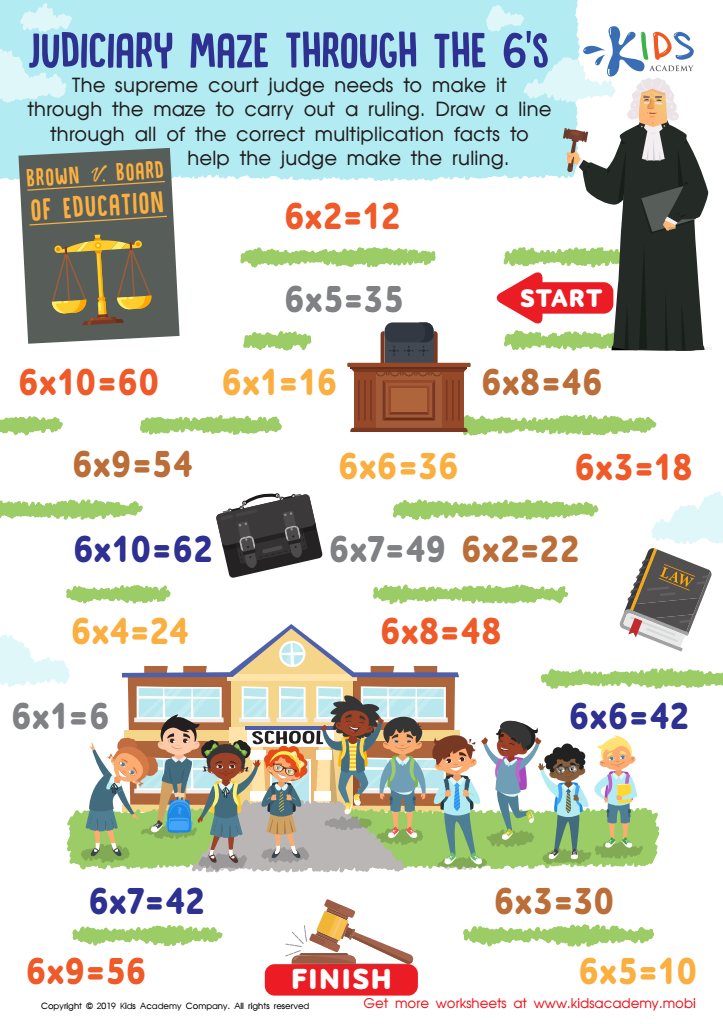

Judiciary Maze Through The 6’s Worksheet
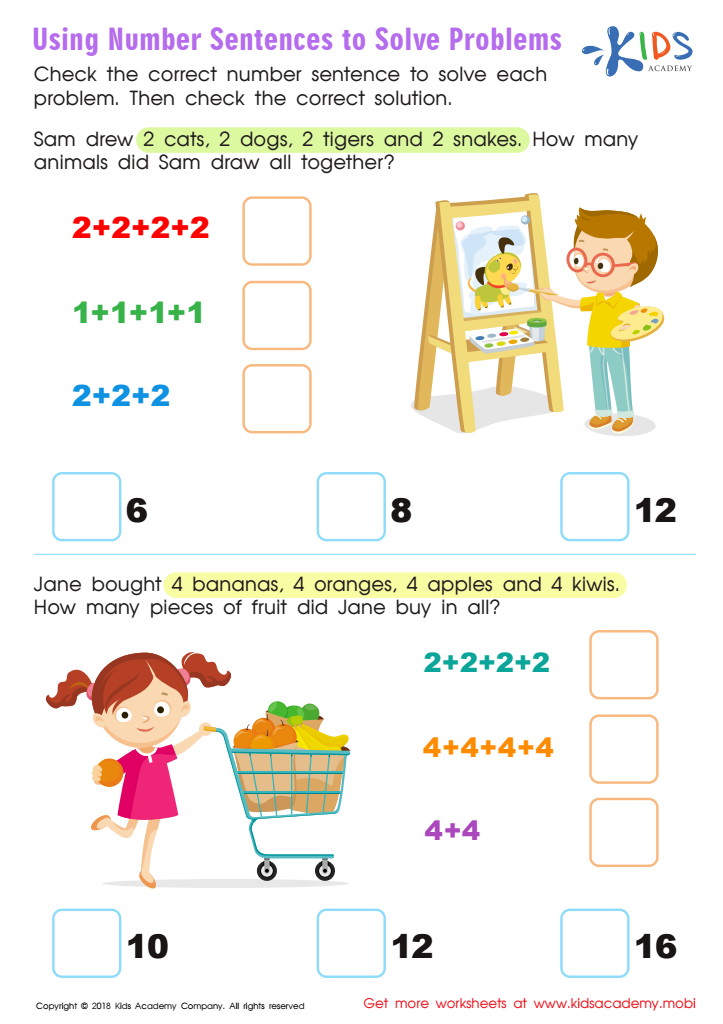

Using Number Sentences to Solve Problems Worksheet
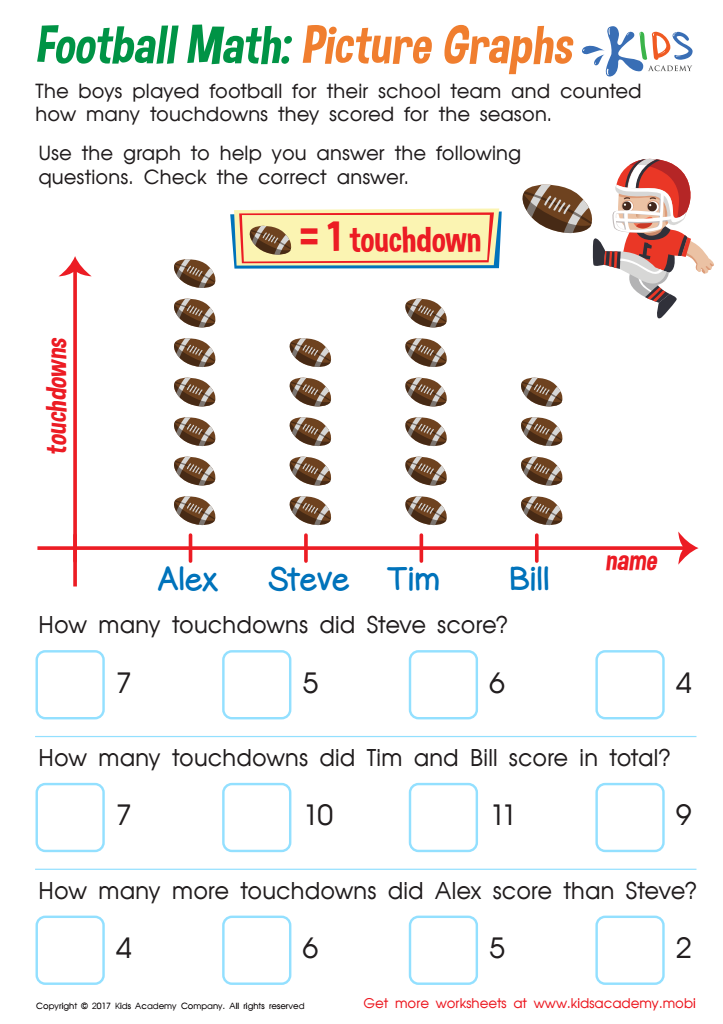

Football Math Worksheet
Developing logical thinking skills in 8-year-olds, particularly through math, is crucial for their cognitive growth and overall learning. Logical thinking enables children to reason systematically, make sense of patterns, and solve problems effectively. At this developmental stage, children's brains are highly receptive to new concepts, and fostering these skills can have long-lasting benefits.
Firstly, logical thinking nurtures problem-solving abilities. Children learn to approach problems methodically, evaluating information and considering various solutions before arriving at a conclusion. This skill is not only essential for math but also for navigating everyday challenges and making decisions.
Secondly, logical thinking enhances academic performance across subjects. Math, in particular, requires understanding sequences, relationships, and numerical patterns, all of which build a solid foundation for future studies in science, technology, engineering, and mathematics (STEM).
Moreover, logical thinking contributes to higher-order thinking skills such as analysis, synthesis, and evaluation. These skills are vital for creative thinking and innovation, preparing children for complex tasks in academics and life.
Lastly, nurturing logical thinking fosters confidence and independence in learning. Children become more self-reliant, trust their reasoning abilities, and are not easily discouraged by challenges. This resilience is valuable for personal growth and lifelong learning.
In summary, emphasizing logical thinking and math for 8-year-olds prepares them for academic success, enhances life skills, and builds a solid foundation for future learning experiences.
 Assign to My Students
Assign to My Students



